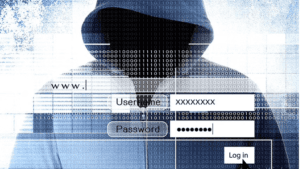The scope of cyber incident handling is a rapidly evolving issue, resulting in a need for a new paradigm. More than ever, businesses are now required to ensure that their networks and data get protected from external threats and that internal applications are secure against all unauthorized access. This post will briefly explain incident handling and how it differs from other disciplines in cybersecurity.
What is incident handling?

Incident handling refers to the processes and procedures used by organizations to manage and resolve incidents that occur within their IT systems, networks, or organizations.
It involves the following steps:
- Detection: An incident gets detected through various means, such as alerts from security systems, user reports, or proactive monitoring.
- Response: The incident response team is activated and assesses the situation to determine the scope and impact of the incident.
- Containment: To prevent further damage, the incident response team takes action to contain the incident, such as isolating affected systems or blocking suspicious network traffic.
- Analysis: The incident response team investigates the incident to determine the cause, the extent of the damage, and the data involved.
- Remediation: The incident response team implements a plan to repair any damage and restore regular operation of the systems or networks affected.
- Recovery: The incident response team verifies that the systems or networks are operating normally and that all data has been recovered.
How incident handling differs from other disciplines in cybersecurity?
Incident handling is a critical discipline within the field of cybersecurity that sets it apart from other related disciplines. While other disciplines may focus on preventative measures such as network security, incident handling focuses on effectively responding and recovering from security incidents once they occur.
Let's compare incident handling to some other cybersecurity disciplines:
- Penetration testing: Penetration testing focuses on proactively testing an organization's defenses to identify vulnerabilities before an attacker can exploit them. On the other hand, incident handling is reactive and focuses on responding to incidents that have already occurred and mitigating their impact.
- Compliance: Compliance focuses on ensuring that an organization adheres to various regulations and standards. While also concerned with compliance, incident handling goes beyond it to provide a comprehensive response to security incidents.
- Network security: Network security focuses on protecting an organization's network from external threats by implementing firewalls, intrusion detection systems, and other security controls. Incident handling is not limited to just the web and focuses on responding to security incidents across the entire organization.
Why is incident handling required for a business?
Incident handling is essential for any business, regardless of size or industry.
The following are some reasons why incident handling is crucial for a business:
- Minimizes Damage: Incident handling enables organizations to respond quickly and effectively to security incidents, reducing the impact on the organization and its customers. By containing the incident and mitigating its effects, incident handling can prevent the loss of sensitive data, minimize downtime, and minimize financial losses.
- Protects Reputation: Security incidents can quickly spread, damaging an organization's reputation and eroding customer trust. Incident handling helps organizations respond rapidly and effectively to these incidents, reducing the risk of long-term damage to the organization's reputation.
- Maintains Compliance: Many industries have strict regulations and standards that organizations must adhere to. Incident handling helps organizations comply with these regulations by responding to security incidents and protecting sensitive data.
- Increases Productivity: A security incident can disrupt operations, leading to lost productivity and increased costs. Incident handling helps organizations respond to security incidents promptly and effectively, minimizing disruptions to operations and maximizing productivity.
Explore a career in cybersecurity with Imarticus Learning
Do you want to master digital defense? You can obtain the knowledge and abilities required for success in today's tech-savvy world from an online cybersecurity analyst course. By learning an ethical hacking certification course, join the ranks of professionals working as penetration testers, subject matter experts, analysts, incident handlers, or SOC Team members. Your ticket to becoming a cyber security celebrity!
Course Benefits For Learners:
- This cyber security course with placement is the perfect way to prep for a career in ethical hacking and penetration testing!
- Our instructors will help you become a cybersecurity analyst by providing rigorous SOC team training and teaching essential problem-solving techniques, arming you with the knowledge to dominate cyber threats!
- This cyber security training will cover the fundamentals of security practices, techniques, tools, and tactics, which come with a job interview guarantee.










